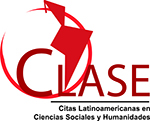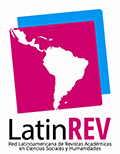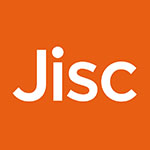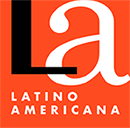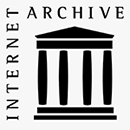Structuring from scratch a legal interoperability laboratory
Abstract
The article describes the creation of an innovative legal interoperability laboratory from scratch at the National School of Public Administration and Local Government in Athens. Its scope and objectives are critically analyzed and its modules described. The problem-based learning method has been applied to a synchronous and asynchronous distance learning educational environment. In particular, in the context of the laboratory, the use of LEOS (Legislation Editing Open Software), a legal informatics tool that has been developed as a European Union ISA2 solution, is highlighted. Moreover, the relation of the laboratory to existing open interoperability courses and the wider European Interoperability Framework are presented along with the tool being assessed for potential use as an authoring tool by the Hellenic public administration. Both the laboratory and the course have been thoroughly evaluated and the results of this evaluation are presented and discussed, in view of plans for the design of additional related interoperability courses and laboratories.
Downloads
References
Chen, C.-H., & Yang, Y.-C. (2019). Revisiting the effects of project-based learning on students’ academic achievement: A meta-analysis investigating moderators. Educational Research Review, 26, 71-81. https://doi.org/10.1016/j.edurev.2018.11.001.
Chinn, D., Hieronimus, S., Kirchherr, J., & Klier, J. (2020). The future is now: closing the skills gap in Europe’s public sector. McKinsey & Company. https://www.mckinsey.com/industries/public-and-social-sector/our-insights/the-future-is-now-closing-the-skills-gap-in-europes-public-sector.
De Graaff, E., & Kolmos, A. (2007). History of problem-based and project-based learning. In De Graaff, E., & Kolmos, A. (Eds.), Management of change (pp. 1-8). Brill Sense. https://doi.org/10.1163/9789087900922.
Dos Santos, A. I., Punie, Y., & Muñoz, J. C. (2016). Opening up Education: a Support Framework for Higher Education Institutions (No. JRC101436). Joint Research Centre. https://doi.org/10.2791/293408.
European Commission. (n.d.) Interoperability Europe Academy. https://joinup.ec.europa.eu/collection/digital-skills-public-sector/solution/interoperable-europe-academy.
European Commission. (2017a). Ministerial Declaration on eGovernment - the Tallinn Declaration. https://digital-strategy.ec.europa.eu/en/news/ministerial-declaration-egovernment-tallinn-declaration.
European Commission. (2017b). New European Interoperability Framework – Promoting seamless services and data flows for European public administrations. http://ec.europa.eu/isa2/sites/isa/files/eif_brochure_final.pdf.
Grover, V., Jeong, S. R., Kettinger, W. J., & Teng, J. T. (1995). The implementation of business process reengineering. Journal of Management Information Systems, 12(1), 109-144. https://doi.org/10.1080/07421222.1995.11518072.
InCiSE. (2019). Results report 2019. https://www.bsg.ox.ac.uk/sites/default/files/2019-04/InCiSE%202019%20Results%20Report.pdf.
Kalogirou, V., Stasis, A., & Charalabidis, Y. (2020). Adapting national interoperability frameworks beyond EIF 3.0: the case of Greece. In Proceedings of the 13th International Conference on Theory and Practice of Electronic Governance (pp. 234-243). https://doi.org/10.1145/3428502.3428536.
Koryzis, D., Dalas, A., Spiliotopoulos, D., & Fitsilis, F. (2021). ParlTech: Transformation Framework for the Digital Parliament. Big Data and Cognitive Computing, 5(1), 15. https://doi.org/10.3390/bdcc5010015.
Kouroubali, A., & Katehakis, D. G. (2019). The new European interoperability framework as a facilitator of digital transformation for citizen empowerment. Journal of biomedical informatics, 94, 103166. https://doi.org/10.1016/j.jbi.2019.103166.
Loutsaris, M.A., & Charalabidis, Y. (2020). Legal informatics from the aspect of interoperability: a review of systems, tools and ontologies. In Proceedings of the 13th International Conference on Theory and Practice of Electronic Governance (pp. 731-737). https://doi.org/10.1145/3428502.3428611.
Mateescu G., Stanciu, A., & Blei, A. (2021). Digital transformation of training programs for public administration. Proceedings of the International Conference on Business Excellence, 15(1), 1171-1182. https://doi.org/10.2478/picbe-2021-0109.
Matt, C., Hess, T., & Benlian, A. (2015). Digital transformation strategies. Business & Information Systems Engineering, 57(5), 339-343. https://doi.org/10.1007/s12599-015-0401-5.
Mikroyannidis, A., & Papastilianou, A. (2021). Open educational resources in public administration: a case study in Greece. Open Learning: The Journal of Open, Distance and e-Learning, 1-15. https://doi.org/10.1080/02680513.2021.1950526.
Organisation for Economic Cooperation and Development. (2021). The OECD Framework for digital talent and skills in the public sector. OECD Working Papers on Public Governance (No. 45). OECD Publishing. https://doi.org/10.1787/4e7c3f58-en.
Pagallo, U., Palmirani, M., Casanovas, P., Sartor, G., & Villata, S. (2018). AI Approaches to the Complexity of Legal Systems: AICOL International Workshops 2015-2017: AICOL-VI@ JURIX 2015, AICOL-VII@ EKAW 2016, AICOL-VIII@ JURIX 2016, AICOL-IX@ ICAIL 2017, and AICOL-X@ JURIX 2017, Revised Selected Papers (Vol. 10791). Springer. https://doi.org/10.1007/978-3-030-00178-0.
Papastylianou, A., Stasis, A., Rantos, K., & Kalogirou, V. (2019). Blended learning and Open Courseware for promoting interoperability in public services. In International Conference on e-Democracy (pp. 79-93). Springer. https://doi.org/10.1007/978-3-030-37545-4_6.
Pezziardi, P., & Verdier, H. (2016). Des “start-up d’État” pour transformer en souplesse l’Administration. Le journal de l’école de Paris du management, 120(4), 22-29. https://doi.org/10.3917/jepam.120.0022.
Sovrano, F., Palmirani, M., & Vitali, F. (2020). Deep learning based multi-label text classification of UNGA resolutions. In Proceedings of the 13th International Conference on Theory and Practice of Electronic Governance (pp. 686-695). https://doi.org/10.1145/3428502.3428604.
Valverde-Berrocoso, J., Garrido-Arroyo, M. d. C., Burgos-Videla, C., & Morales-Cevallos, M.B. (2020). Trends in Educational Research about e-Learning: A Systematic Literature Review (2009-2018). Sustainability, 12(12), 5153, https://doi.org/10.3390/su12125153.
Van Laar, E., Van Deursen, A. J., Van Dijk, J. A., & De Haan, J. (2017). The relation between 21st-century skills and digital skills: A systematic literature review. Computers in Human Behavior, 72, 577-588. https://doi.org/10.1016/j.chb.2017.03.010.
Wirtz, B. W., Weyerer, J. C., & Geyer, C. (2019). Artificial intelligence and the public sector—Applications and challenges. International Journal of Public Administration, 42(7), 596-615. https://doi.org/10.1080/01900692.2018.1498103.
Zalavra, E., & Papanikolaou, K. (2022). A wiki-based framework for collaborative learning design in teacher education. Education and Information Technologies, 27, 6407-6435. https://doi.org/10.1007/s10639-021-10874-9.
Copyright (c) 2022 Fotios Fitsilis, Anastasia Papastylianou

This work is licensed under a Creative Commons Attribution-NonCommercial-NoDerivatives 4.0 International License.
This license allows the copy, distribution, exhibition and representation of the work provided authorship is acknowledged and the work is properly quoted. Commercial use of the original work or the generation of derived works are not allowed.
The authors hereby guarantee the right to the first publication of the work to the Revista Política Austral.







